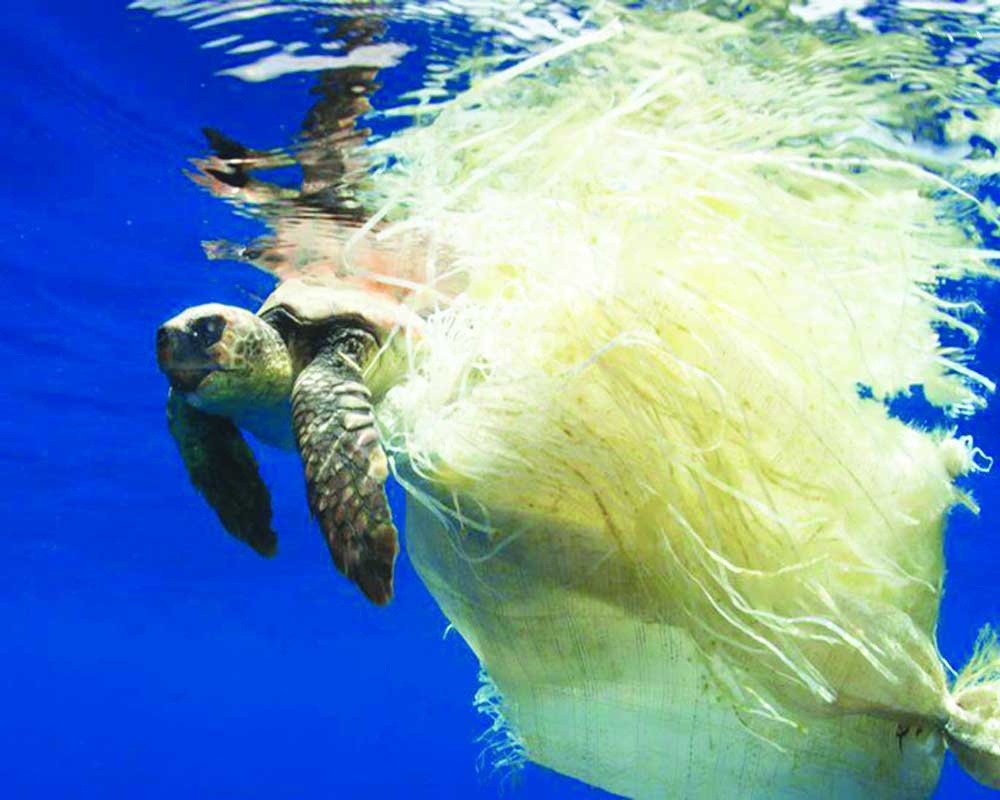Fundamentally, companies need to re-imagine their business models based on the recognition that we cannot continue to produce disposable packaging that is used for seconds but pollutes our planet for generations
Every environmentally-conscious Indian is aware of the threat that plastics pose to natural habitats. Our streets, mountains, lakes, oceans, rivers and even sewers are clogged with this non-degradable material that does not get recycled fast enough, even as more and more of it continues to be pushed into the environment. Though we are well aware of its detrimental effects, yet it is still the most favoured “go to” item for consumers and manufacturers alike.
Quite clearly, environmental concerns take a back seat over convenience and bottom lines. What else can explain the fact that despite the numerous bans initiated against its use over the years, plastic continues to pervade every aspect of our lives?
Though the recent effort of the Government to end single-use plastic is one more welcome step, whether it will succeed in its objective of dissuading the common man from it is anybody’s guess. Yet, if the Government’s ambitious plan of doing away with single-use plastic works, it may actually pave the way for much larger restrictions on the use of all types of plastic.
This weaning away is vital as the scale of plastic proliferation and the harm that it does to the environment, especially to the marine ecology is mind-numbing. The equivalent of a truckload of plastic enters the ocean every single minute. Once in the marine environment, plastic breaks into smaller and smaller pieces and according to studies, there are an estimated 50 trillion plastic particles in our oceans today. These are often ingested by marine animals, who, then die horribly painful deaths because, of it. In response to growing public concern over conventional plastics, many companies are swapping single-use plastics derived from fossil fuels with bio-based plastics that are made from renewable resources like corn, potatoes, rice, soy, sugarcane, wheat, and vegetable oil instead of non-renewable petroleum-based resources. Bio-based plastics are made by creating plastic polymers from these materials, through either chemical or biological processes.
Though these are often erroneously promoted as biodegradable or compostable, the fact is that these plastics are as difficult to biodegrade or recycle as conventional plastic.
One again, corporate profitability is taking the lead over environmental responsibility and concerns. The Government, too, seems to be at sea when it comes to pinning down the exact sources of plastic proliferation. Due to this ambiguity, even the incidence of the recently-banned single-use plastic is now steadily creeping up.
The plastic pollution crisis will only be resolved when companies that profit from single-use plastic declare a state of “peak plastic” and commit to urgent reductions in the amount of single-use disposable packaging units they sell. An obvious first step is immediately eliminating unnecessary and excessive packaging, such as coffee capsules. Firms will also need to adopt a publicly available, comprehensive plan to invest in new ways to bring products to consumers in reusable and refillable packaging that is durable, affordable and more responsibly produced. Many diverse reuse and refill options exist currently and with innovation, more could be developed. Fundamentally, companies also need to reimagine their business models based on the recognition that we cannot continue to produce disposable packaging that is used for seconds but pollutes our planet for generations.
India must script a re-use revolution that will eventually transcend borders and set international benchmarks in reducing, reusing and recycling. As a priority, the Government must first call for the reduction of units sold in single-use packaging and at the same time encourage investment in solutions focussed on reusing, refilling and so on, that are not dependent on disposables.
Ultimately companies need to rethink how products are delivered to the consumer and this is what the Government must facilitate. In transitioning from throwaway plastic, India must visualise replacing virgin plastic with non-toxic. Recycled and recyclable plastic only has a limited role in addressing the plastic overproduction problem. However, there is no silver bullet, one-size-fits-all option for new reusable or refillable packaging that will be applicable to every company, product or geography. Therefore, it is pertinent that fast moving consumer goods (FMCG) firms and retailers urgently prioritise investment into the delivery of reuse and refill options.
(The writer is an environmental journalist)
























